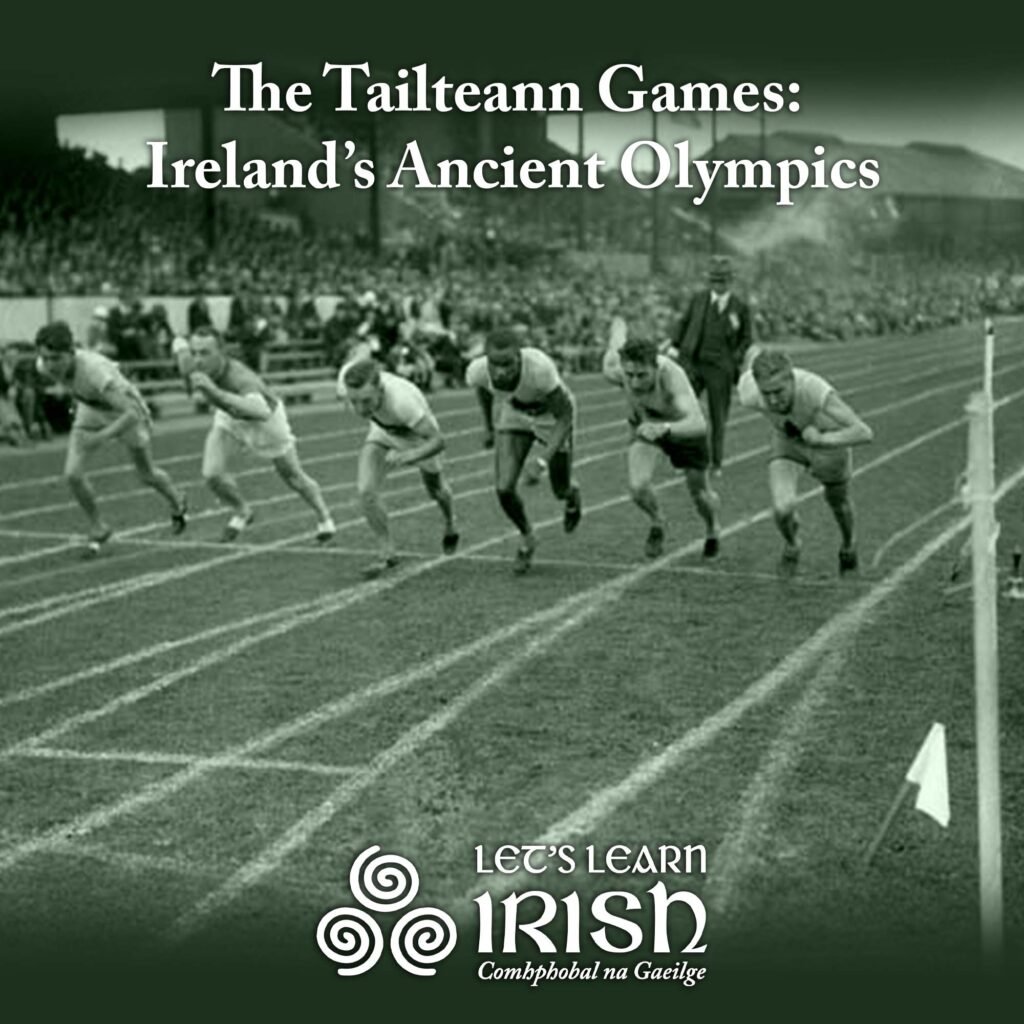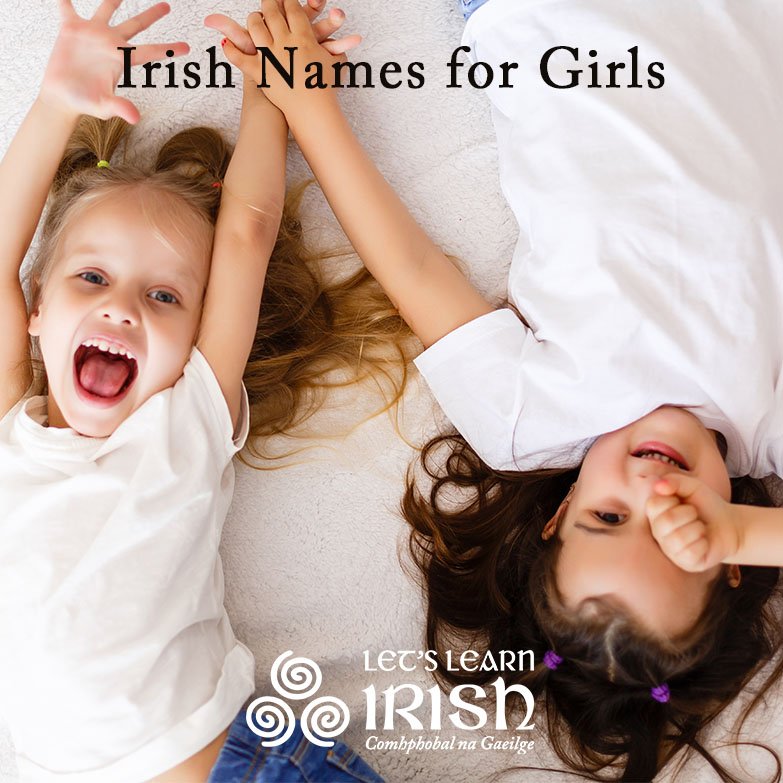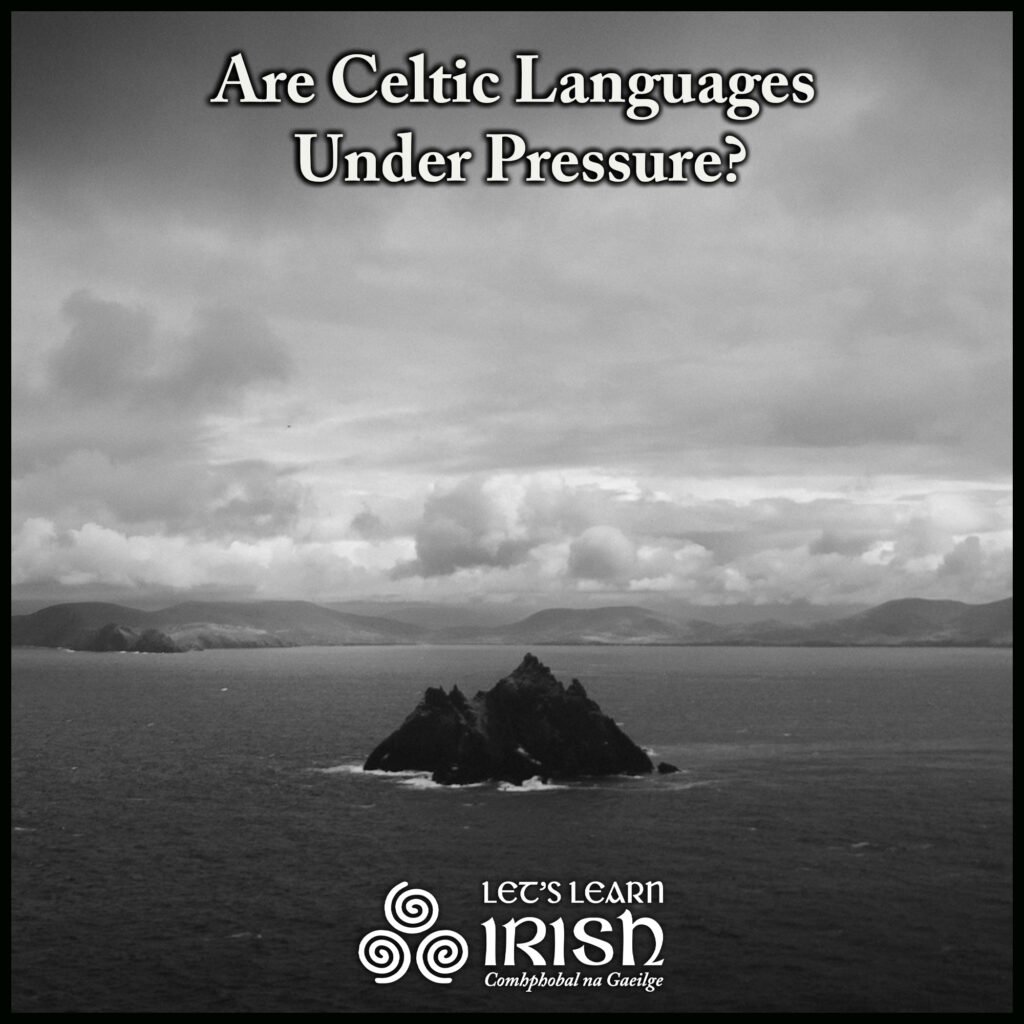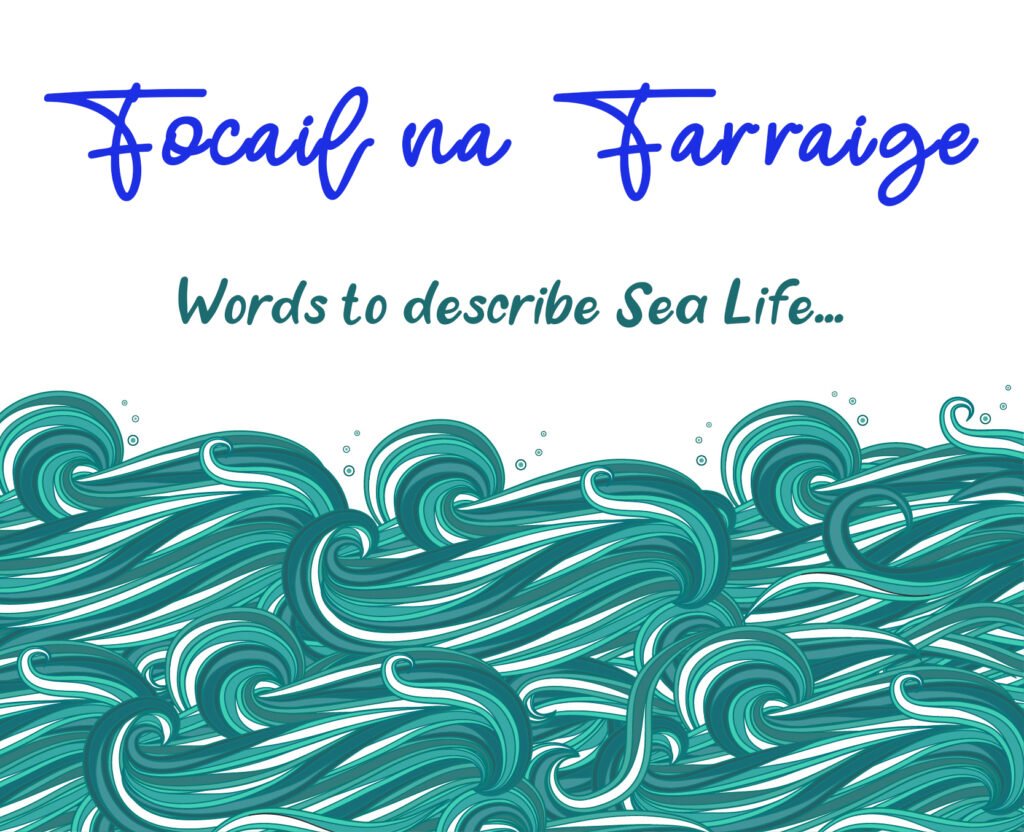Stair: History
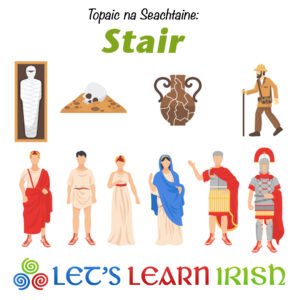
Focail / Words
Archeology – Seandálaíocht
Archeologist – Seandálaí
Archeological Site – Láthair Seandálaíochta
Ancient – Ársa
Ancient history – Stair Ársa
An artefact – Déantán
Ancient Greece – an tSean-Gréig
Ancient Rome – an tSean-Róimh
Archeology – Seandálaíocht
Art Gallery – Dánlann
Battle – Cath
Ceasefire – Sos cogaidh
Celtic Artefact – Déantán Ceilteach
Civilisation – Sibhialtacht
Democracy – Daonlathas
Dictator – Deachtóir
Documentary – Clár Faisnéise
Election – Toghchán
Emancipation – Fuascailt
Era/Age – Ré
Europe – an Eoraip
Evidence – Fianaise
Excavate – Tochail
Fables – Finnscéalta
Freedom – Saoirse
Greek (geog) – Gréagach
Greek (ling) – Gréigise
Historian – Staraí
Historical – Stairiúil
International – Idirnáisiúnta
Historian – Staraí
Historical Period – Tréimhse Stairiúil
King – Rí
Kingdom – Ríocht
Liberation – Saoradh
Local – Áitiúil
A Lecture – Léacht
Medieval – Meánaoiseach
Member of parliament – Teachta parlaiminte
Militia – Mílíste
Monarchy – Monarcacht
Monastery – Mainistir
Museum – Iarsmalann
Peace – Síocháin
Plot – Plota
Prehistoric – Réamhstairiúil
President – Uachtarán
Primary Source – Foinse Píomhá
Race (human group) – Cine
Representative – Ionadaí
Republic – Poblacht
Revolution – Réablóid
Ruins – Fothracha
Queen – Banríon
The Easter Rising – Éiri Amach na Cásca
The Enlightenment – an Eagnaíocht
The Great Hunger/The Famine – An Gorta Mór
The Great Depression – an Spealadh Mór
The Great War – an Cogadh Mór
The Reformation – An Reifirmásean
The Renaissance – An Athbheochan
Treaty – Conradh
Uprising – Éirí amach
World War 1 – an Chéad Chogadh Domhanda
World War 2 – an Dara Cogadh Domhanda
Frásaí / Phrases
Going on an archaeological dig – Ag dul ar thochailt seandálaíochta
As the years go by – Le himeacht na mblianta
Doing historical research – Taighde stairiúil a dhéanamh
The rest is history – Stair atá sa chuid eile
Historical reenactment – Athachtú stairiúil
In a by-gone era – I ré atá imithe
In the past – San am a chuaigh thart
The country has a turbulent past – Tá stair chorrach ag baint leis an tír
Tá a fhios ag madraí an bhaile cén chríoch a bhí ar an scéal – The dogs of the town know the end of the story.
Tá a fhios ag an saol Fódlach cad a tharla ina dhiaidh sin – The whole of Ireland knows what happened after that.
Bígí páirteach!
Join the online Irish community at LetsLearnIrish.com.
Follow on social media @LetsLearnIrish.


